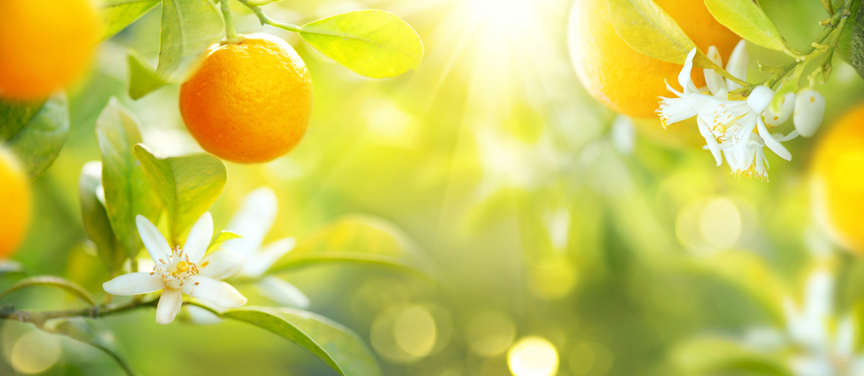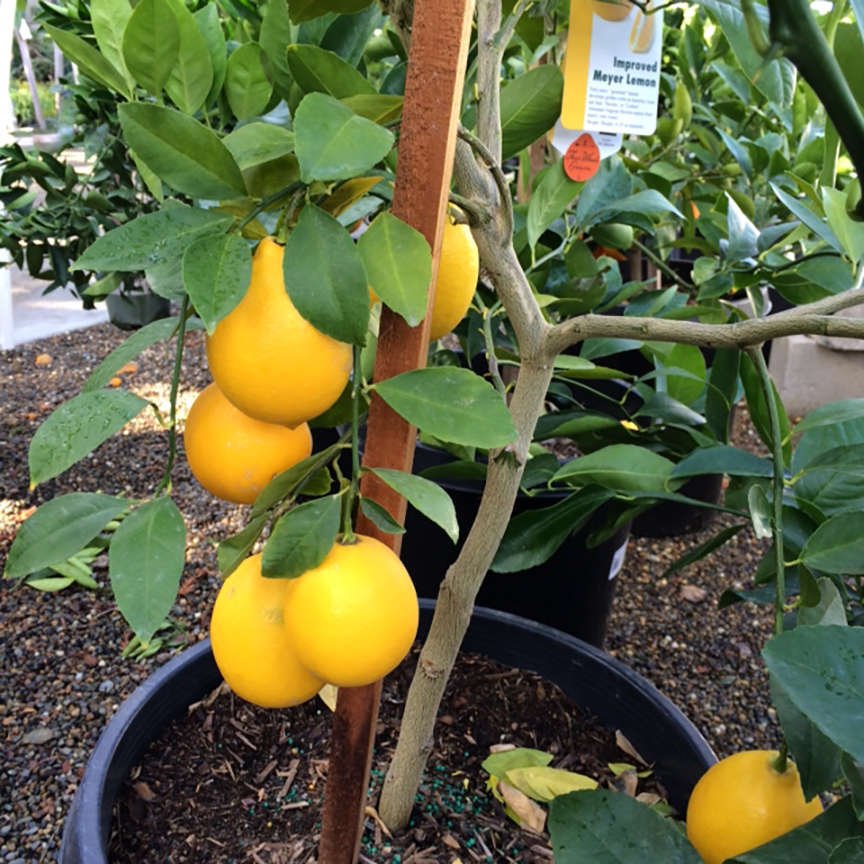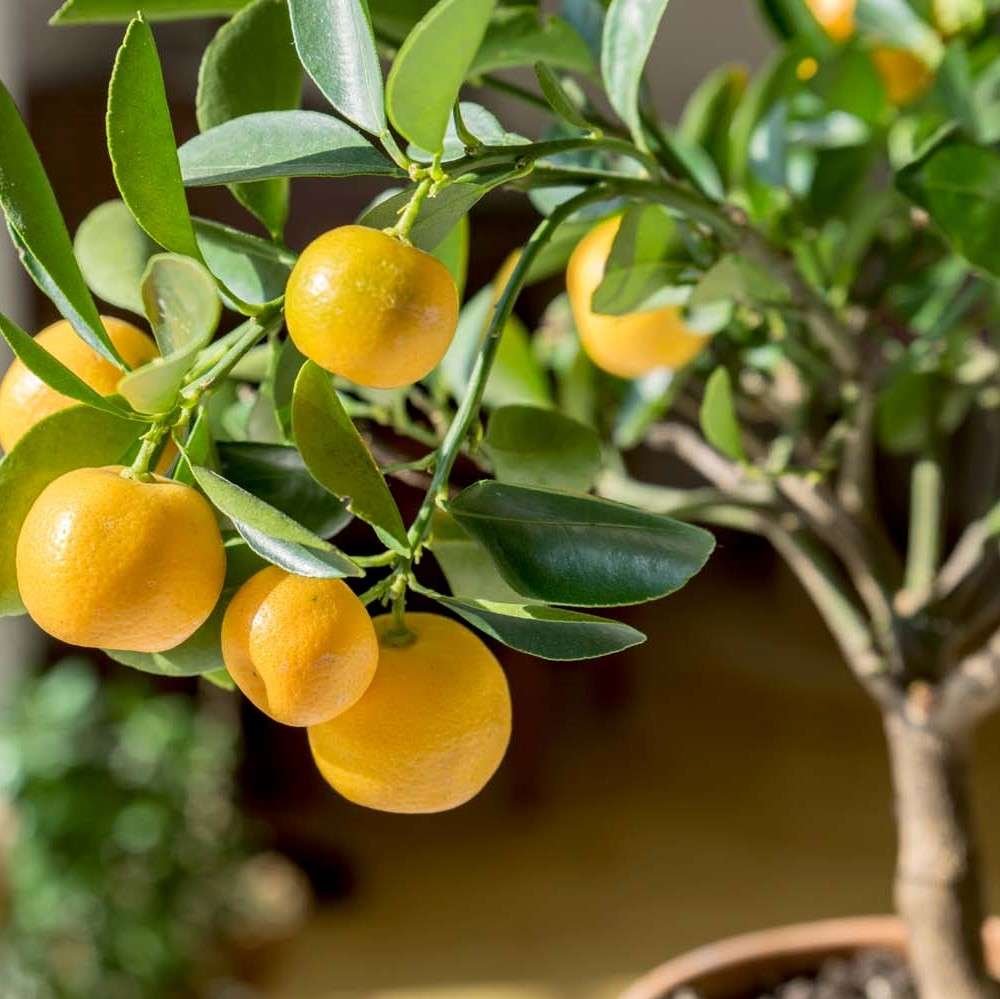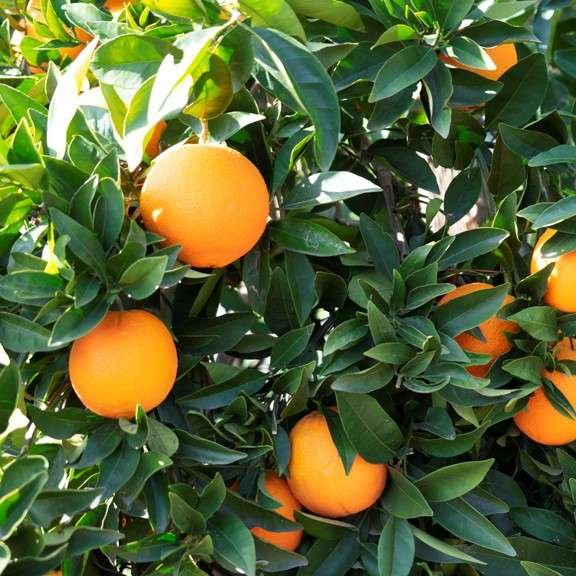
Growing Citrus

Add A Slice of Sunshine With Citrus
There is so much to appreciate about citrus trees. They're hardy, will thrive in challenging soils, can be grown in pots or directly in the ground, and are very generous with delicious fruit during a long harvest season. If you are considering adding a citrus tree to your edible garden, we have some growing tips to help you find success along the way.
It's All About The Rootstock
The rootstock is a very important consideration when purchasing a citrus tree, and we strongly recommend choosing semi-dwarf. Trees grown on semi-dwarf rootstock may be pruned to stay as low as six feet and can outlive dwarf rootstock by as long as forty years. For more information about why semi-dwarf is the best choice, listen to our Green Acres Garden Podcast as Everette from our Folsom store explains: Citrus Trees and All Things Bees.
Lemon Tree
Growing Tip: Patience is needed with citrus as it may take up to five years to be a consistent producer. Remove the fruit the first year as the branches are too young to support the weight. Each year after the first, more and more citrus fruit will grow.
Variety Is The Spice Of Life
The multitude of varieties now available allow us to have citrus ripe and ready nearly twelve months out of the year. Even if you have a small yard, you can easily maintain a smaller profile for your trees or plant them in containers to expand your fruit selection to two, three or more varieties.
Tangerine Tree
Growing Tip: Water to the depth of the whole root zone. Before watering again, use your finger or a moisture meter to determine when the top six to eight inches of soil has dried out.
Citrus Care Tips
Citrus trees are very forgiving of many types of soil and conditions, except when it comes to irrigating. The trees absolutely insist on being watered deeply and then allowed to let the soil dry out several inches before watering again. If citrus is “loved” with constant watering, the leaves will turn yellow and drop off.
Citrus fruit can stay on the tree for many weeks, extending the harvest season significantly.
Typically citrus trees do not need fertilizing in the winter while it is fruiting. We recommend waiting until February to begin fertilizing again.
Citrus tree varieties are known for their resilience against pests and disease. If you do experience problems, bring in a sample or picture and our experts can help identify the issue and recommend the right solution.
Citrus fruit can stay on the tree for many weeks, extending the harvest season significantly.
Typically citrus trees do not need fertilizing in the winter while it is fruiting. We recommend waiting until February to begin fertilizing again.
Citrus tree varieties are known for their resilience against pests and disease. If you do experience problems, bring in a sample or picture and our experts can help identify the issue and recommend the right solution.
Orange Tree



